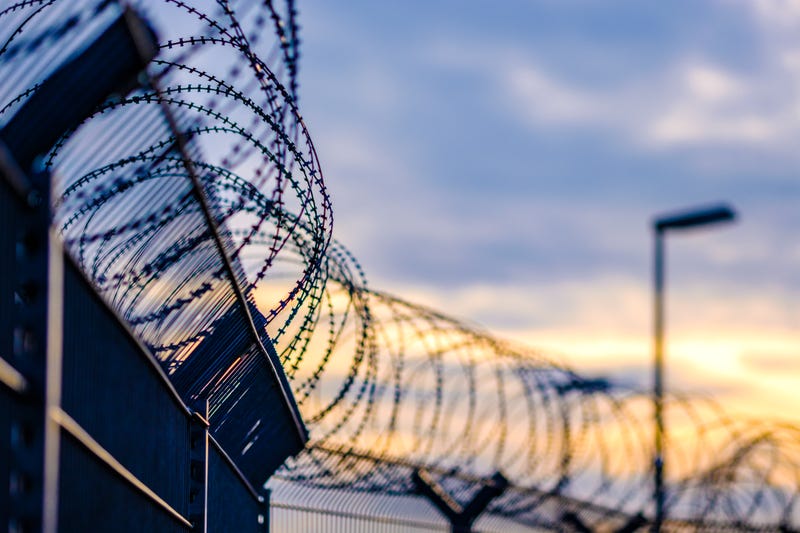
Stephen Barbee will live at least a month longer than the legal system initially intended. A federal judge in South Texas has stayed the Fort Worth man’s execution after he waged a last-minute fight over the presence of a spiritual advisor in the death chamber.
He is the fourth Texas inmate to use the tactic.
“Specifically, Barbee complains that the Texas Department of Criminal Justice (TDCJ) will prevent his chosen spiritual advisor from having physical contact and praying with him during the execution process,” U.S. District Judge Kenneth M. Hoyt wrote in an order. “Barbee argues that these limitations will violate the First Amendment’s Free Exercise Clause and substantially burden the exercise of his religion in violation of the Religious Land Use and United States District Court Southern District of Texas ENTERED October 07, 2021 Nathan Ochsner, Clerk 2 / 19 Institutionalized Persons Act of 2000.”

Hoyt granted the request to stay the execution.
Barbee was convicted of the 2005 murders of his ex-girlfriend, Lisa Underwood, and her son Jayden, 7. Underwood was pregnant at the time she was suffocated in her Fort Worth home. The two bodies were later recovered from a shallow grave in Denton County.
In 2006, a Tarrant County jury convicted Barbee and sentenced him to death. His appeals have been rejected by the courts at each point until he landed on the argument over a spiritual advisor.
For years, executions in Texas were carried out with much thought to the spiritual advisor. Typically, the advisor, who was approved by TDCJ, was allowed in the death chamber and allowed to place a hand on the condemned person’s ankle.
That changed in early 2019 when Texas Seven inmate Patrick Henry Murphy sued because TDCJ protocol would not allow the spiritual advisor of his choice, a Pure Land Buddhist priest. in the execution chamber. TDCJ argued the advisor was not vetted and posed a security issue.
The U.S. Supreme Court intervened, halting the execution.
Associate Justice Brett Kavanaugh entered a concurring statement that proposed; “there would be at least two possible equal-treatment remedies available to the State going forward: (1) allow all inmates to have a religious adviser of their religion in the execution room; or (2) allow inmates to have a religious adviser, including any state-employed chaplain, only in the viewing room, not the execution room.”
Murphy is still alive and awaiting further legal action.
Five days after the Murphy ruling TDCJ revised its protocol to exclude all spiritual advisors from the death chamber. That didn’t work either.
On September 26, 2019, death row inmate Ruben Gutierrez filed a civil rights lawsuit claiming that the new policy violated his civil rights. Again the Supreme Court stayed the execution based on religious reasons and assigned a district court to determine what security issues were presented by spiritual advisors.
In April of this year, a new execution protocol was adopted by TDCJ that provided details on background checks for spiritual advisors, training and presence inside the chamber.
Omitted was the ability for the advisor to lay hands on the condemned or to recite scripture. Inmate John H. Ramirez challenged the new protocol, and again the courts stayed the execution. His case has been put on the Supreme Court’s “rocket docket” and will be argued in Washington on November 1, 2021.
Lawyers for Barbee saw the opportunity. As a Pentecostal who formerly taught Sunday school, Barbee is accustomed to members of his religion laying hands on a church member and reciting prayers, according to his lawyer, Richard Ellis.
Thursday, Hoyt signed the order staying the execution until after the court rules in the Ramirez case.
“So far, I don’t think TDCJ has come up with a good justification as to why this is somehow a risk to security within the facility,” said Brian Owsley, a law professor at the University of North Texas. “And that’s the argument they need to make in a convincing manner to carry the day here.”
There are three more executions that are still scheduled in Texas, posted on the TDCJ website. But using the religious argument as an 11th-hour method of avoiding execution could be a tough sell if an inmate is suddenly finding religion.
“If your execution is next month, and you’ve been on death row for 15-years and all of the sudden you have a late epiphany on the road to Damascus, as it were, it’s going to be a little harder,” said Owsley, who notes the courts are often skeptical of last-minute claims. It’s the inmate who has been regularly seeking counsel from a spiritual leader who will get the Court’s attention.
So far as where TDCJ looks, moving forward; “Because of ongoing litigation, I am unable to provide an answer at this time,” said Robert Hurst, a spokesman for the department in an e-mail.
LISTEN on the Audacy App
Sign Up and Follow NewsRadio 1080 KRLD

